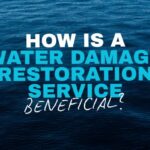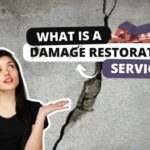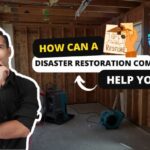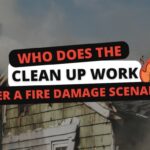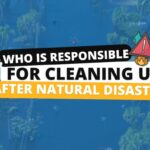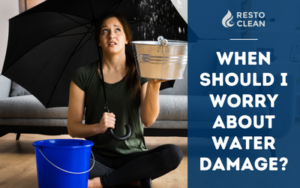
We often dismiss some “minor” concerns at home, mainly if we are already preoccupied with many more urgent and essential things, such as work and taking care of our family daily. For example, when you notice your faucet dripping slightly, it won’t bother you as much as the need to prepare breakfast for your family. Likewise, if your toilet takes a long time to flush, but you’re late for an appointment, you won’t have time to investigate what appears to be the problem. So, when do these things become “real” concerns? Do we have the time to ignore them and deal with them later?
These issues may appear to be unimportant. It may even take a while to realize that what you’re experiencing is already water damage. But, unfortunately, water damage is more complicated than you think!
A frozen or broken pipe could be causing the dripping water from your faucet. Your toilet problem could cause your sewer to back up, which is terrible!
Resto Clean can handle your emergency water damage needs with ease, whether the water is caused by leaking pipes, broken pipes, malfunctioning appliances, sewage damage, or natural causes. We also take care of emergency water cleanup in Wasilla.
What do you commonly associate water damage with?
Water damage can get surprisingly expensive. You might believe that a small amount of water invading your home or place of business won’t break the bank, but there have been instances in which that little bit of water resulted in damage that required tens of thousands of dollars to fix.
The worst aspect of water damage is that it is constantly a possibility. So let’s look at some of the most common causes of water damage.
1. Damaged pipes
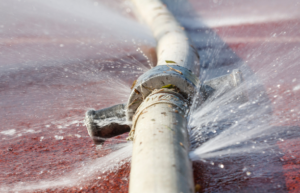
Older plumbing systems are prone to clogs and damage. Cracks, bulges, stains, and other signs of moisture on your ceiling or floors can indicate plumbing problems. A leak may indicate further damage. Your landscaping, flooring, and foundation may be damaged if your water bill spikes. Check crawl spaces, cabinets, and attics for leaking pipes. If you see water damage, call Resto Clean to avoid more significant issues. Before winter, check and insulate your pipes. Within hours, frozen pipes can burst and flood a home.
2. Appliances
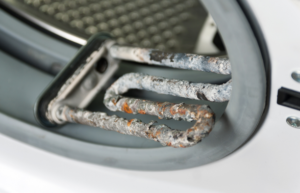
Pipes and hoses rust as appliances age. Leaking dishwashers can leave puddles on the floor. Damaged gaskets, doors, and drains are common causes. In addition, it damages tile, wiring, and paint. A quart of vinegar a month prevents dishwasher buildup. Then, before loading, scrape and rinse your dishes.
Leaky hoses cause most washer flooding. Over time, the leak can cause home damage. A washing machine valve shutoff kit can prevent flooding.
Refrigerators produce excess water that pools on the bottom. Drains can clog. If your ice machine’s water supply line leaks, you may find standing water. Insulate your fridge to prevent flooding. Avoid moving it too often and check for leaks.
3. Clogged drains
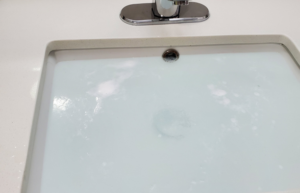
Dirt, grease, hair, and other things can quickly clog the drains and flood the bathroom and sink. Pipes can break, and damage to the building itself is common. If you don’t clear out clogged drains, you could get sick, catch a disease, or worsen your health. If you don’t fix clogged drains, they can damage other parts of your home. For example, water can flow back into your sink if your toilet is clogged. You might even bend the wall supports and floorboards. Small screens can help keep things from going down drains that shouldn’t. Once a month, pouring boiling water down your drain can help break up grease, soap scum, and other debris before they get stuck in your pipes.
4. Natural disasters
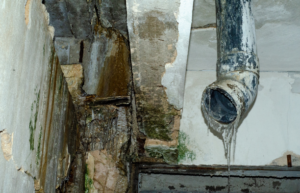
Snowstorms and flashfloods can bring too much water into your home. You can protect your home from a natural disaster with the help of a flood alarm and warning system. Some people living in areas that are likely to flood put their houses on stilts to prepare for floods. Some people put vents or sump pumps in the foundation. You can also slope your lawn away from home.
Also, make sure you know where the water main is, and turn it off if you’re going to be gone for a long time. This way, you won’t find any unpleasant surprises when you get home.
5. HVAC units
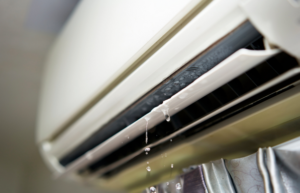
Your home’s heating, ventilation, and air conditioning (HVAC) systems can cause floods. Make sure these systems are checked and cleaned often. If you know a storm is coming, turn off your central air conditioner to avoid damage and the chance of being electrocuted.
6. Sump pump problems
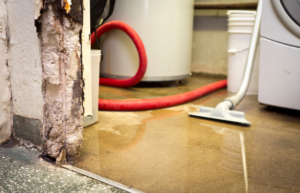
If your sump pump stops working, your basement could get flooded. Then you’ll have to deal with mold, getting rid of water, and bacteria. Make sure your sump pump stands straight up for it to work well. Make sure the hole in the pipe that goes out is secured. Your drain pipes should be joined together tightly and drain at least six feet away from where you are. If your sump pump has leaks, you should immediately call a professional.
7. Structural damage
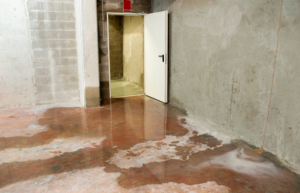
When water enters your home through cracks in the concrete or crawl spaces, mold and rotting can happen. Check your house often for these things. If you take care of your trees and plants and clean your gutters often, water won’t get into your home and damage the walls and foundation. You can also prevent flooding by installing an alarm that goes off when it senses water. Finally, ensure your home’s water pressure is manageable and low so that it won’t break the pipes and hoses.
Even though we have to take care of our typical day-to-day tasks, we need to set aside some time to do maintenance and check on our appliances, HVAC units, gutters, and pipes to prevent water damage. It will be more of a pain if we ignore the early signs of water damage and then have to spend a lot of time, energy, and money to fix the “now-emergencies” that we didn’t think were important at the time.
An immediate response is required for water damage. In the long run, standing water that hasn’t been treated can do more harm. Water damage restoration is more complicated than you might imagine!
If you require assistance with water damage restoration in Wasilla, get in touch with Resto Clean. We’ll simplify things for you.

